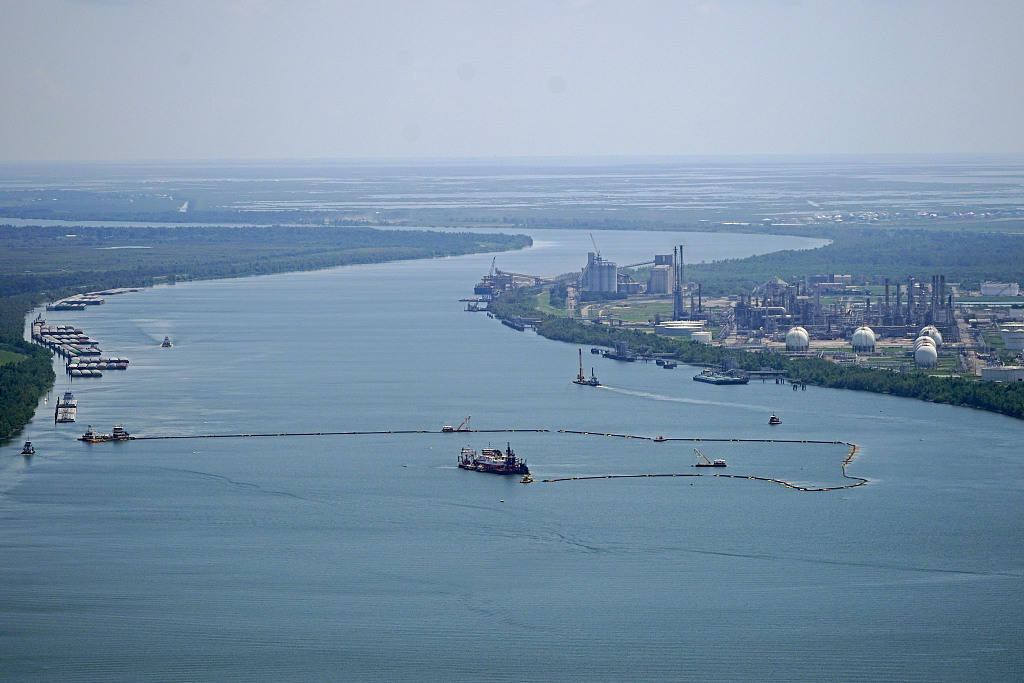The U.S. state of Louisiana is working to slow a mass inflow of salt water creeping up the Mississippi River and threatening drinking water supplies in the southern part of the state.
On Wednesday, President Joe Biden authorized the Department of Homeland Security and the Federal Emergency Management Agency to send disaster assistance after approving an emergency declaration for the state.
For the second year in a row, salt water from the Gulf of Mexico has moved further up the Mississippi, threatening drinking water in communities that rely on the river for fresh water. Typically, the river's mighty flow keeps mass amounts of salt water from reaching too far inland, but hot and dry conditions across the country this summer triggered drought that slowed the Mississippi's flow and lowered its water levels.

Dogs walk on land that is usually submerged by the Mississippi River during unusually low water levels in Harahan, Louisiana, July 20, 2023. /VCG
Dogs walk on land that is usually submerged by the Mississippi River during unusually low water levels in Harahan, Louisiana, July 20, 2023. /VCG
Residents in the southeast corner of Louisiana have relied on bottled water for drinking and cooking since June, as water from the faucet has become salty.
Advisories have been issued for some communities, warning people the water is unsafe to drink, especially for people with kidney disease, high blood pressure, those on a low-sodium diet, infants and pregnant women.
Now, the salt water is moving further upriver and will likely reach the state's most populous city, New Orleans, by mid-to-late October, officials say.
While officials say they are praying for rain to help increase the velocity of the drought-stricken river, they are also taking matters into their own hands by raising the height of an underwater levee used to block or slow the salt water and bringing in 15 million gallons of fresh water to treatment facilities in impacted areas.

Dredging operations are underway to augment an underwater levee to stop salt water from the Gulf of Mexico in Plaquemines Parish, Louisiana, September 26, 2023. /CFP
Dredging operations are underway to augment an underwater levee to stop salt water from the Gulf of Mexico in Plaquemines Parish, Louisiana, September 26, 2023. /CFP
The Mississippi is one of the world's most important commercial waterways, and the Port of South Louisiana is critical for grain shipments, handling about 60 percent of U.S. grain exports.
Traffic along the Mississippi is already slower than usual due to the drought, which has left the river so low that barge companies are reducing their loads.
State departments are also monitoring the effect on agriculture – specifically citrus nurseries, which rely heavily on irrigation and are more sensitive to salt water than a mature tree in the ground.
But with the saltwater influx likely being a long-duration event, the full effects of the saltwater intrusion have yet to be felt.
(With input from AP)
(Cover image via CFP)
(If you have specific expertise and want to contribute, or if you have a topic of interest that you'd like to share with us, please email us at nature@cgtn.com.)